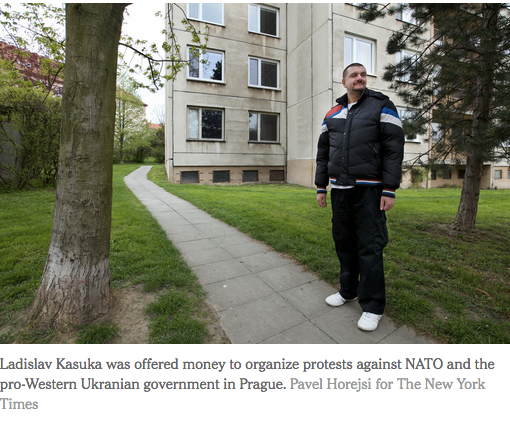Mr. Kasuka’s collaboration with Mr. Usovsky first came to light in a cache of emails, Facebook messages and other data pilfered by Ukrainian hackers from Mr. Usovsky’s computer. It provides a rare ground-level view of a particularly murky aspect of Russia’s influence strategy: freelance activists who promote its agenda abroad, but get their backing from Russian tycoons and others close to the Kremlin, not the Russian state itself.
Mr. Usovsky’s focus was on marginal political players in the Czech Republic, Hungary, Poland and Slovakia, and his efforts mostly fell flat. The protests organized by Mr. Kasuka and others attracted only handfuls of people. Pro-Russian websites that Mr. Usovsky helped to set up all fizzled. A Polish politician he was in touch with, Mateusz Piskorski, was arrested last year on suspicion of spying for Russia.
None of that seemed to deter Mr. Usovsky, who was still pitching wild plans and detailed budgets to potential backers in Moscow early this year.




